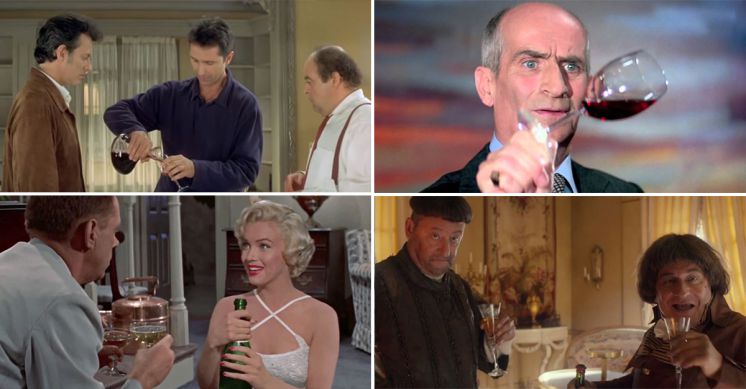This article explores the influence of wine and culture, its role in literature and film, and how it reflects societies and eras.
Wine and literature: a source of inspiration
Since ancient times, wine has been a central element in many stories. It symbolizes both divine intoxication and human decadence. In Greek mythology, Dionysus, god of wine and celebration, embodies the duality of pleasure and excess.
Writers have often used wine and literature to enrich their stories and characterize their characters. Rabelais, in his work Gargantua, celebrates wine as a beverage of wisdom and happiness. Later, in Les Fleurs du mal, Baudelaire elevated wine to the rank of poetic muse, evoking its intoxicating effects on the soul and imagination.
In the 20th century, authors such as Ernest Hemingway and Francis Scott Fitzgerald used wine to illustrate the elegance and melancholy of their characters. In Le Soleil se lève aussi (The Sun Also Rises), Hemingway stages drunken parties where wine accompanies the existential torments of his heroes. Fitzgerald, for his part, in Gatsby the Magnificent, presents grand receptions where champagne flows freely, revealing the opulence and emptiness of high society.
Wine and cinema: between tradition and modernity

Wine and cinema share a rich history, in which bottles and glasses of wine often become powerful narrative elements. In many films, wine symbolizes elegance, tradition and temptation.
In Sideways (2004), wine is at the heart of the plot. This road movie follows two friends as they travel through California's wine country, revealing their complex relationship and personal quest. The film had a significant impact on the popularity of Pinot Noir in the USA, proving the influence of cinema on wine trends.
Another outstanding example is Mondovino (2004), a documentary exploring the industrialization of wine and the confrontation between small family farms and the industry's large corporations. The film illustrates how wine is much more than just a drink: it represents a heritage, a culture and a struggle between tradition and globalization.
French films are not to be outdone. Ce qui nous lie (2017), directed by Cédric Klapisch, tells the story of a sibling who takes over the family winery. The film explores heritage, values and the inextricable link between wine and the transmission of knowledge.
Wine, a reflection of society and emotions

Wine is more than just a decorative element in literature and cinema. It also holds up a mirror to societies and their evolution. Its presence in stories explores class differences, family ties and historical upheavals.
In the works of the 19th century, wine is often synonymous with celebration and social belonging. It marks the distinction between the elite, who consume grands crus, and the working classes, who are content with simple wines. This symbolism is still present today, particularly in films, where the choice of wine reflects the status and personality of the characters.
Wine is also often associated with human emotions. In literature and film, it accompanies moments of happiness, nostalgia or solitude. It becomes a silent confidant, revealing the moods of the protagonists.
Wine, a heritage worth preserving
If wine occupies such an important place in art, it's also because it's deeply rooted in tradition and terroir. Literature and film help to pass on this heritage and raise public awareness of the importance of preserving winegrowing know-how.
Today, with the rise of organic and natural wines, new themes are emerging. Writers and directors are now tackling subjects such as the ecological impact of wine production and the preservation of ancestral grape varieties.
A passion that spans time
Wine and culture remain inextricably linked. Whether in classic stories, contemporary novels or cinematic productions, it continues to evolve and fascinate. Each era reinvents its relationship with wine, while retaining its central role in the expression of emotions and traditions.
Conclusion: wine, a timeless symbol
Wine, through its presence in literature and cinema, continues to captivate and inspire. It is a witness to societal evolution and a vector of universal emotions. By exploring its cultural influence, we better understand its importance and lasting impact on our heritage.
If you enjoyed this article, please read the following article "The perfect wines to accompany a vegetarian meal", which may also be of interest to you!





